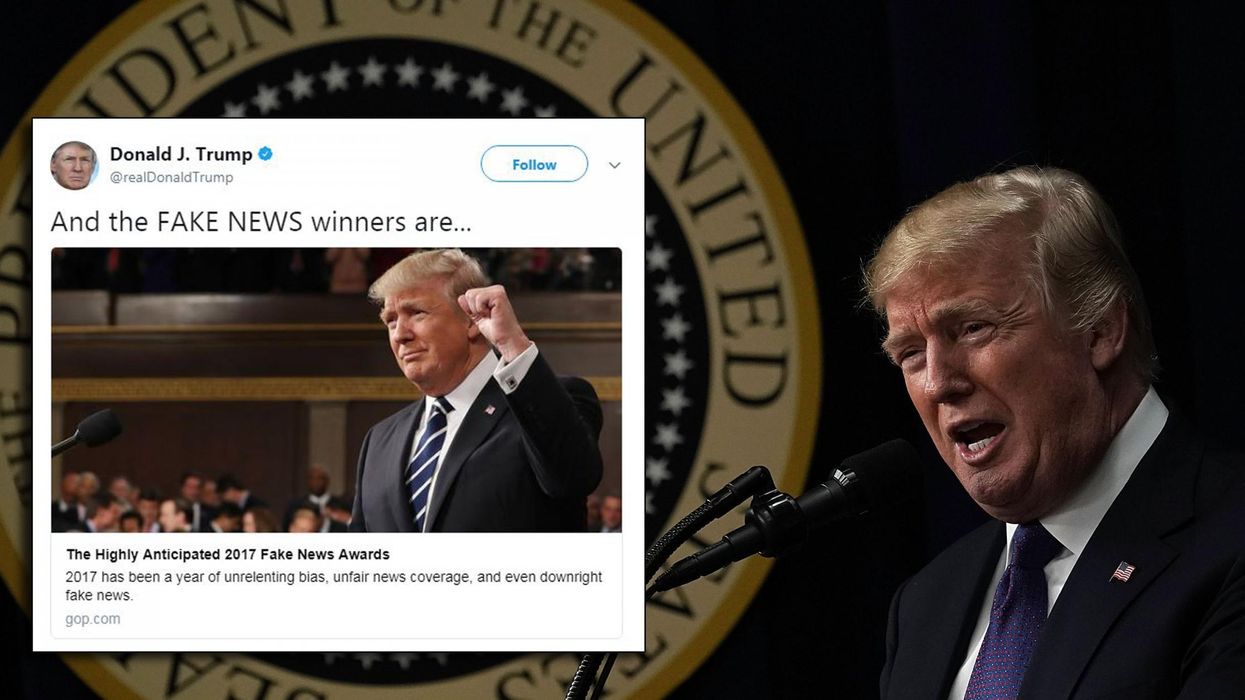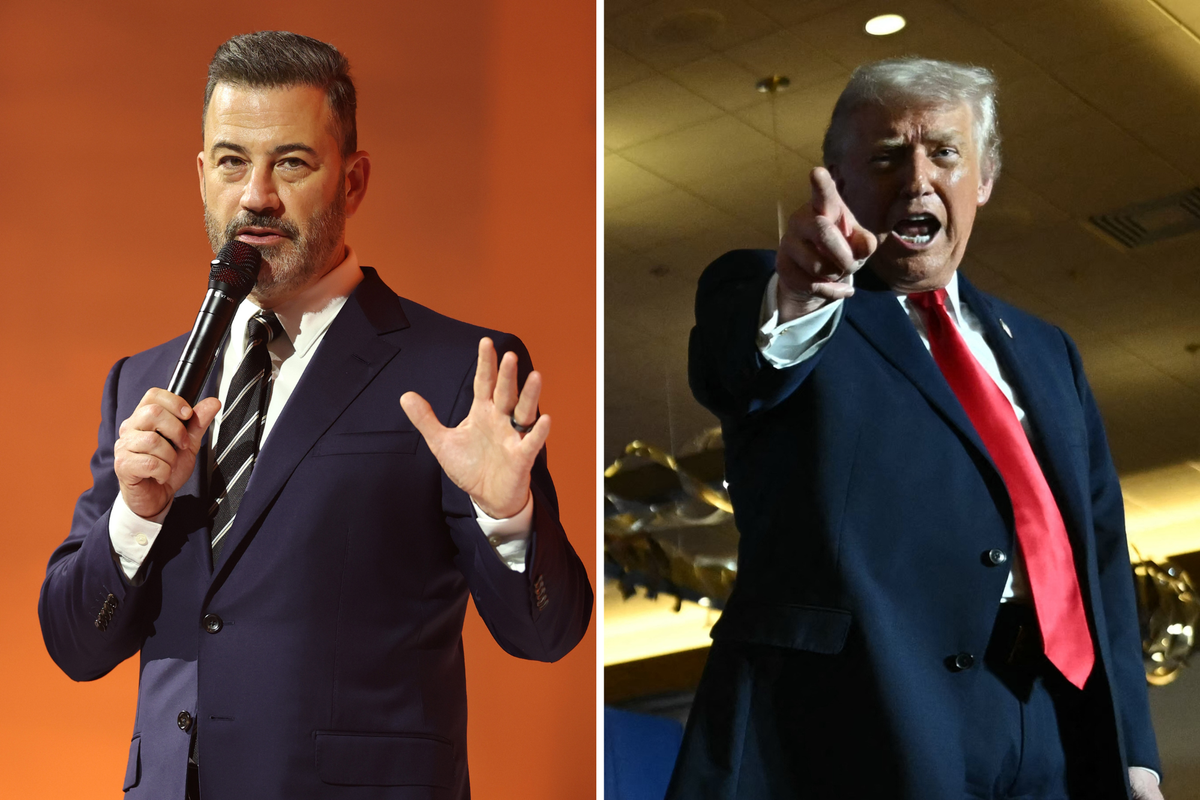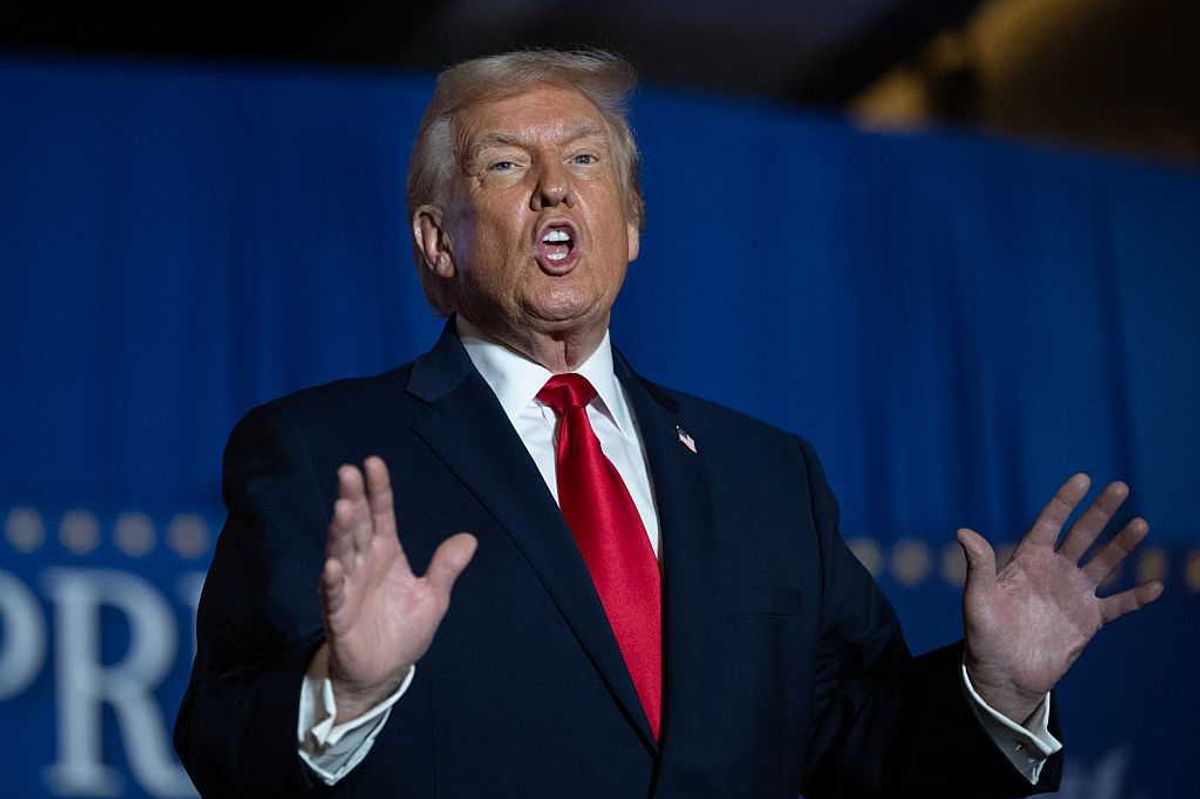Louis Dor
Jan 18, 2018

Picture:
Alex Wong/Getty Images/Twitter
President Donald Trump spent a small proportion of his tweets last week hyping the upcoming "Fake News Awards".
The awards, he claimed, would expose the most "corrupt and biased of the mainstream media", and a number of broadcasters were really excited about them.
A day before the awards were initially announced for, Trump tweeted that they would be postponed.
Which was not promising.
They then turned out to be a rather botched affair. On Wednesday, Press Secretary Sarah Huckabee Sanders had no answers as to when the awards would be held, or even how they would be given out. She said there would be an announcement later.
Trump supplied this announcement in the form of a tweet, as most expected:
There was a problem, however. Many users attempting to click the link in his tweet were greeted with a 404 page.
People speculated that traffic had overloaded the site...
...as the GOP confirmed:
Eventually, the link began to work, presenting visitors with a listicle of 11 headlines the GOP considered incorrect reporting.
Trump caveated that he didn't decry all news as fake, directly linking his perception of the quality of reporting to the national optimism of the piece.
In a Washington Post op-ed on Tuesday 16 January, Republican Senator John McCain criticised Donald Trump's use of the term "Fake News":
Unfortunately, the Trump administration’s attitude toward such behavior has been inconsistent at best and hypocritical at worst. While administration officials often condemn violence against reporters abroad, Trump continues his unrelenting attacks on the integrity of American journalists and news outlets. This has provided cover for repressive regimes to follow suit. The phrase “fake news” — granted legitimacy by an American president — is being used by autocrats to silence reporters, undermine political opponents, stave off media scrutiny and mislead citizens. CPJ documented 21 cases in 2017 in which journalists were jailed on “fake news” charges.
Trump’s attempts to undermine the free press also make it more difficult to hold repressive governments accountable. For decades, dissidents and human rights advocates have relied on independent investigations into government corruption to further their fight for freedom. But constant cries of “fake news” undercut this type of reporting and strip activists of one of their most powerful tools of dissent.
HT Mashable
More: Donald Trump tried to run an approval 'poll' with no negative options
Top 100
The Conversation (0)













